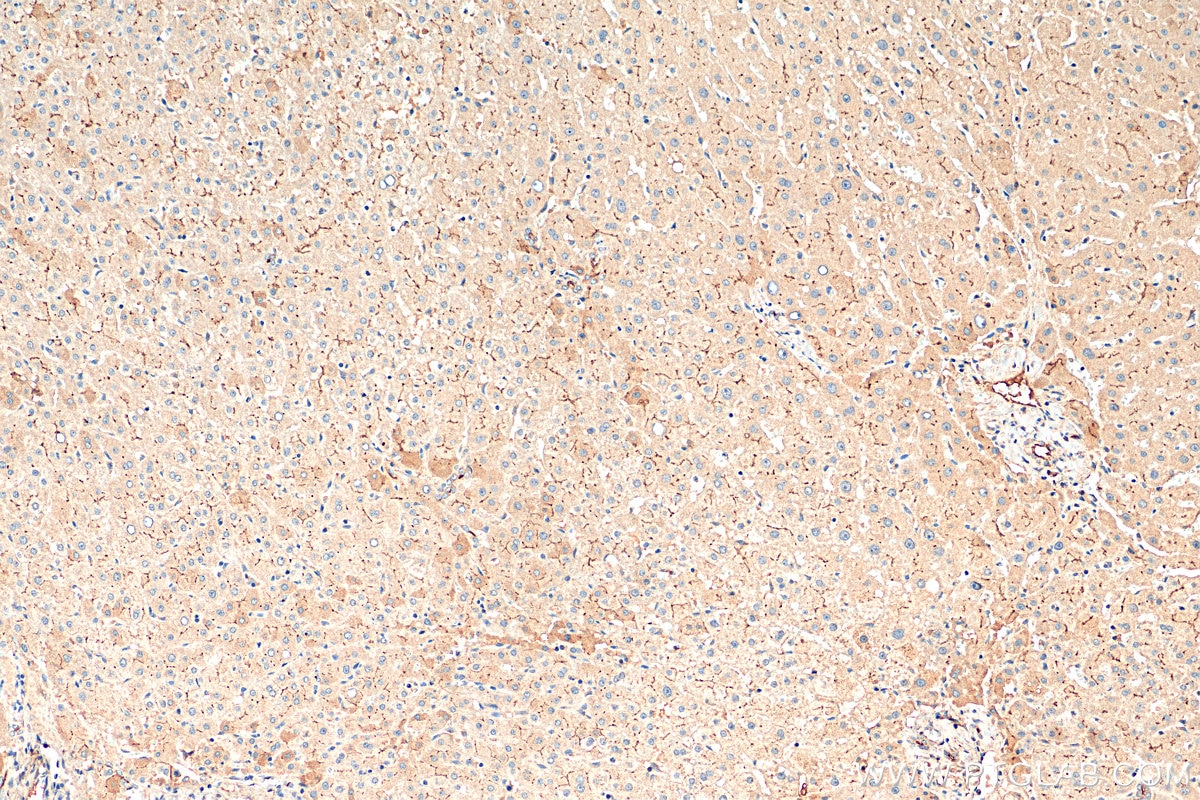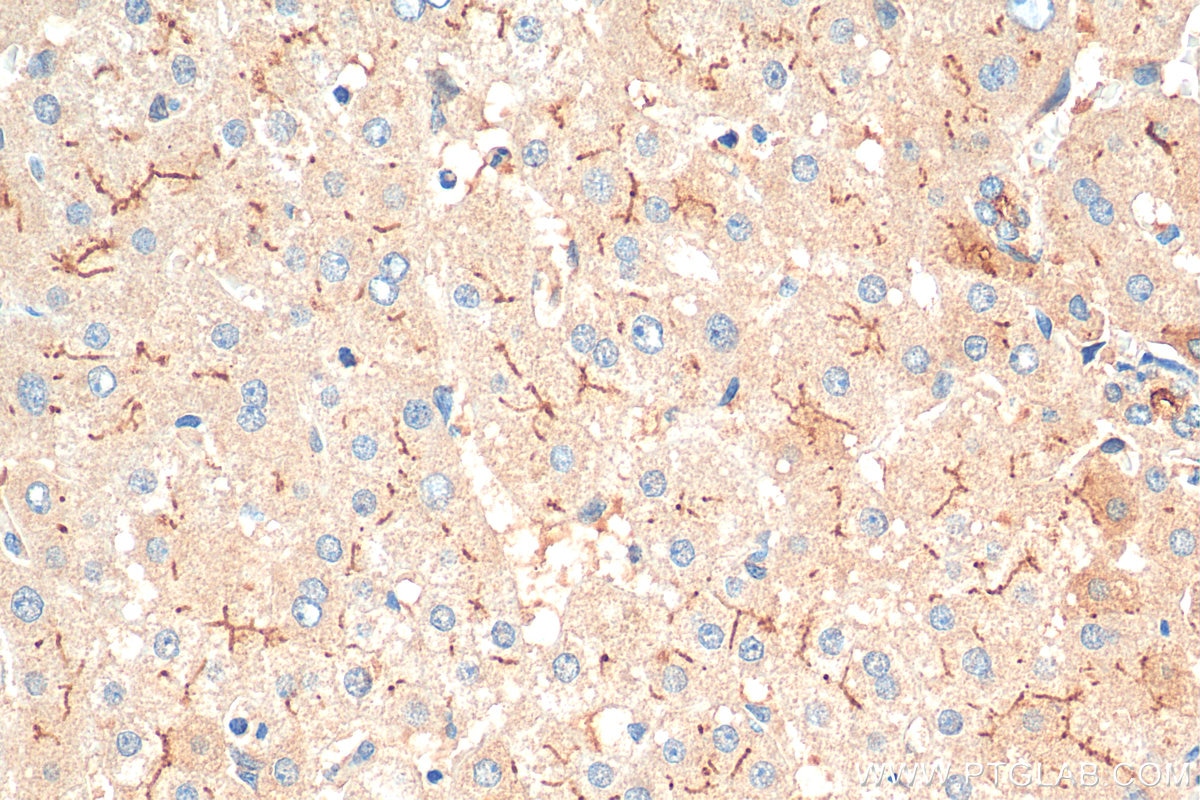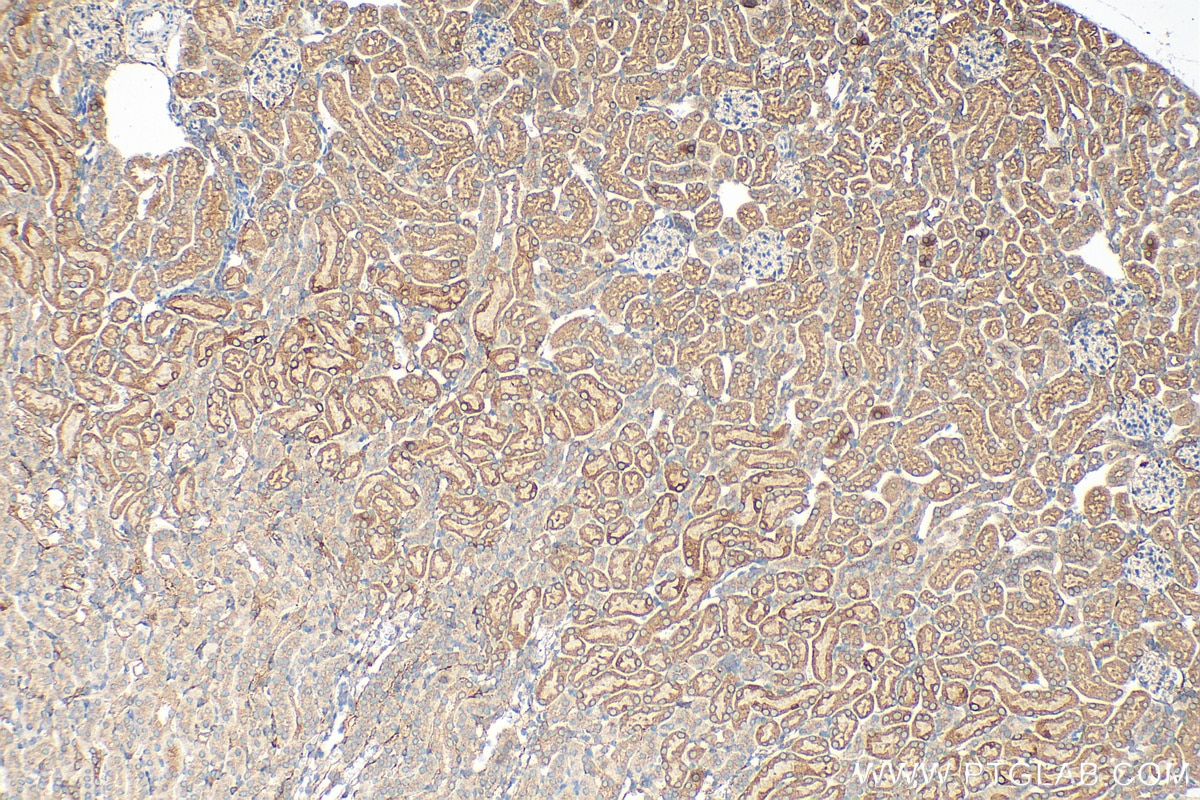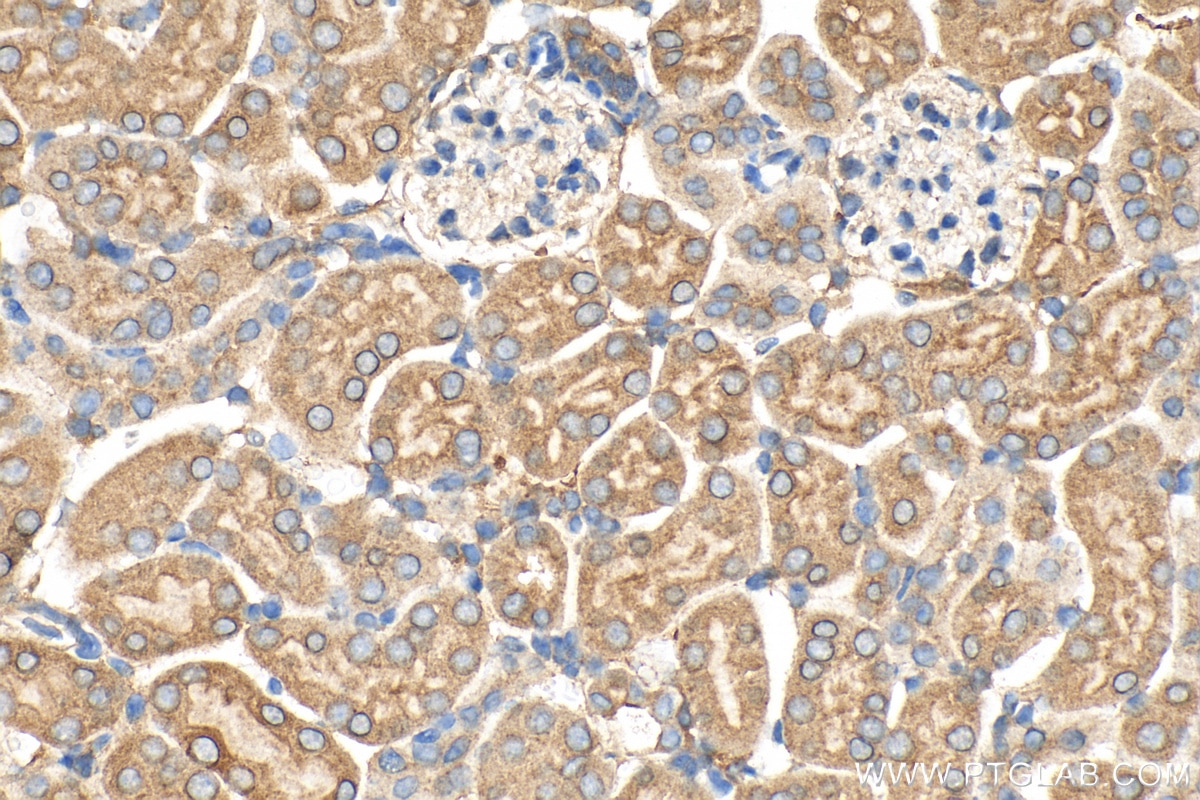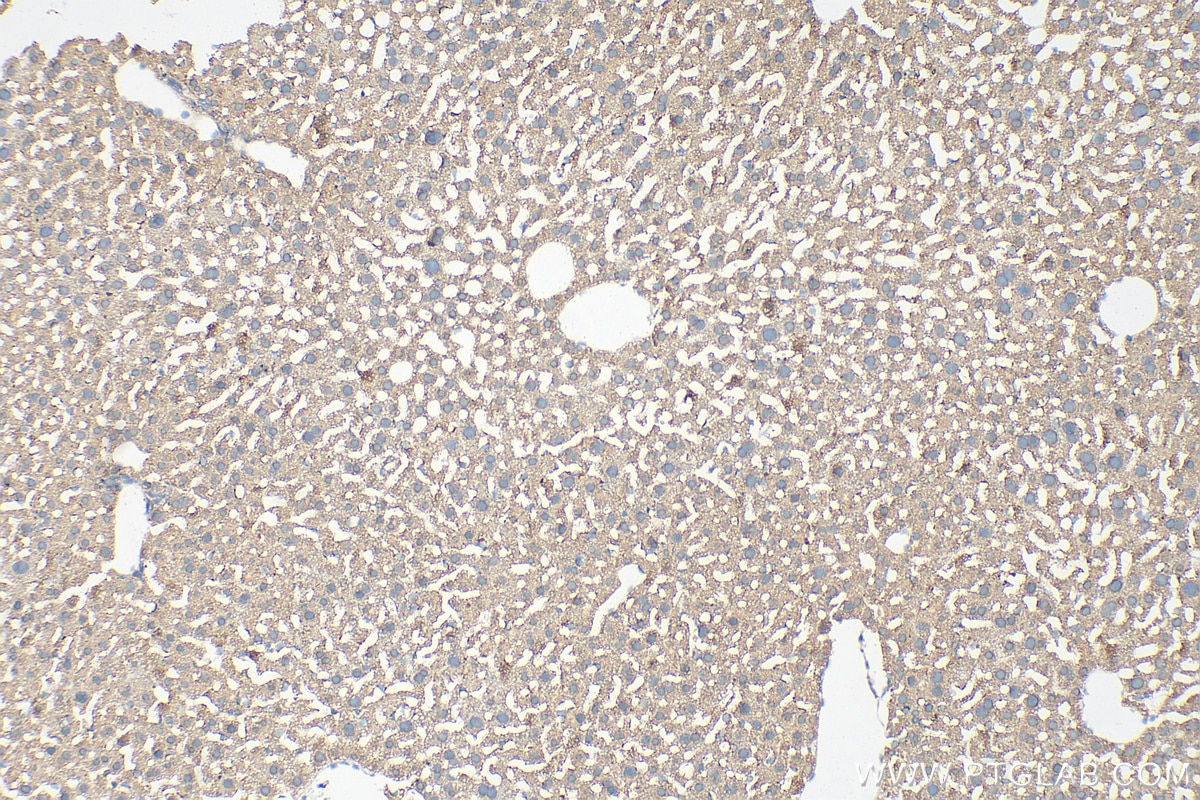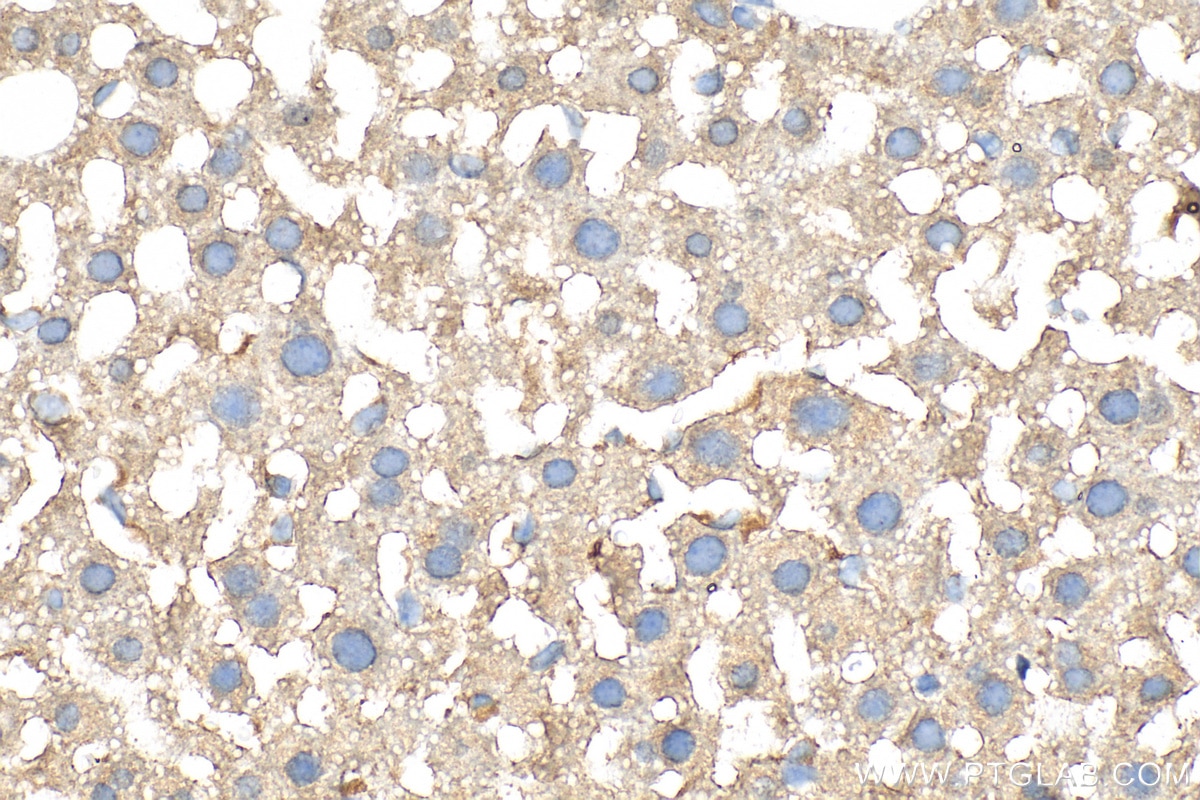Tested Applications
| Positive IHC detected in | human liver tissue, mouse kidney tissue, mouse liver tissue Note: suggested antigen retrieval with TE buffer pH 9.0; (*) Alternatively, antigen retrieval may be performed with citrate buffer pH 6.0 |
Recommended dilution
| Application | Dilution |
|---|---|
| Immunohistochemistry (IHC) | IHC : 1:50-1:500 |
| It is recommended that this reagent should be titrated in each testing system to obtain optimal results. | |
| Sample-dependent, Check data in validation data gallery. | |
Published Applications
| WB | See 22 publications below |
| IHC | See 9 publications below |
| IF | See 2 publications below |
Product Information
28530-1-AP targets IGF1 in WB, IHC, IF, ELISA applications and shows reactivity with Human, mouse samples.
| Tested Reactivity | Human, mouse |
| Cited Reactivity | human, mouse, rat, chicken |
| Host / Isotype | Rabbit / IgG |
| Class | Polyclonal |
| Type | Antibody |
| Immunogen |
CatNo: Ag29197 Product name: Recombinant human IGF1 protein Source: e coli.-derived, PGEX-4T Tag: GST Domain: 49-118 aa of NM_001111285.2 Sequence: GPETLCGAELVDALQFVCGDRGFYFNKPTGYGSSSRRAPQTGIVDECCFRSCDLRRLEMYCAPLKPAKS Predict reactive species |
| Full Name | insulin-like growth factor 1 (somatomedin C) |
| Calculated Molecular Weight | 22 kDa |
| GenBank Accession Number | NM_001111285.2 |
| Gene Symbol | IGF1 |
| Gene ID (NCBI) | 3479 |
| RRID | AB_2881164 |
| Conjugate | Unconjugated |
| Form | Liquid |
| Purification Method | Antigen affinity purification |
| UNIPROT ID | P05019 |
| Storage Buffer | PBS with 0.02% sodium azide and 50% glycerol, pH 7.3. |
| Storage Conditions | Store at -20°C. Stable for one year after shipment. Aliquoting is unnecessary for -20oC storage. 20ul sizes contain 0.1% BSA. |
Background Information
IGF1, also named as IBP1, MGF, IGF-IA, and Somatomedin-C, belongs to the INS family. IGF1 is structurally and functionally related to INS but has a much higher growth-promoting activity. Altered expression or mutation of IGF-1 is associated with several human disorders, including type I diabetes and various forms of cancer. Defects in IGF1 are the cause of INS-like growth factor I deficiency (IGF1 deficiency) which is an autosomal recessive disorder characterized by growth retardation, sensorineural deafness, and mental retardation.
Protocols
| Product Specific Protocols | |
|---|---|
| IHC protocol for IGF1 antibody 28530-1-AP | Download protocol |
| Standard Protocols | |
|---|---|
| Click here to view our Standard Protocols |
Publications
| Species | Application | Title |
|---|---|---|
Cancer Lett Small extracellular vesicle-bound vascular endothelial growth factor secreted by carcinoma-associated fibroblasts promotes angiogenesis in a bevacizumab-resistant manner. | ||
Metabolism Arginine reverses growth hormone resistance through the inhibition of toll-like receptor 4-mediated inflammatory pathway. | ||
J Nutr Biochem Resistant Starch Confers Protection of Dietary Against Diabetic Cardiomyopathy | ||
Mol Nutr Food Res Milk Polar Lipids Supplementation to Obese Rats During Pregnancy and Lactation Benefited Skeletal Outcomes of Male Offspring. | ||
J Cell Mol Med Amentoflavone reverses epithelial-mesenchymal transition in hepatocellular carcinoma cells by targeting p53 signalling pathway axis | ||
Int J Biol Sci Tubule-mitophagic secretion of SerpinG1 reprograms macrophages to instruct anti-septic acute kidney injury efficacy of high-dose ascorbate mediated by NRF2 transactivation |
Reviews
The reviews below have been submitted by verified Proteintech customers who received an incentive for providing their feedback.
FH Hongxue (Verified Customer) (01-31-2025) | The western blot data looks good.
|
FH Hongxue (Verified Customer) (01-17-2023) | IHC staining for mouse liver, works well.
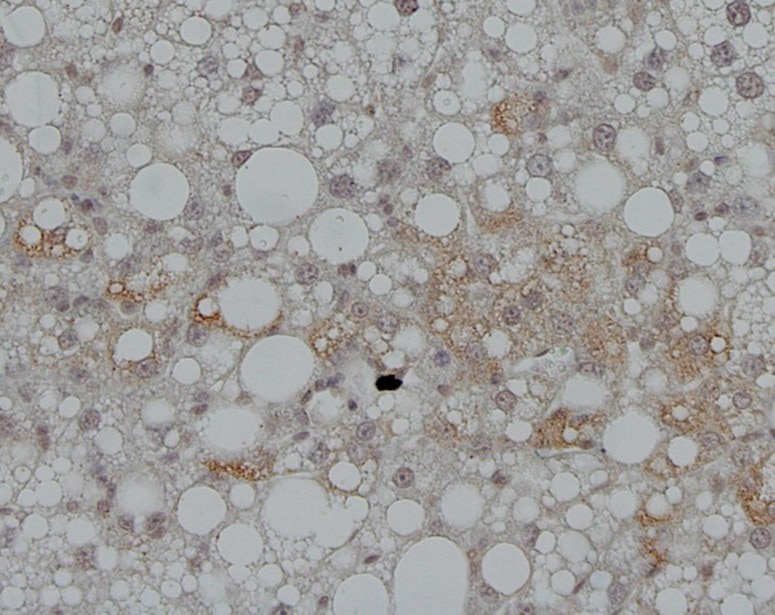 |

